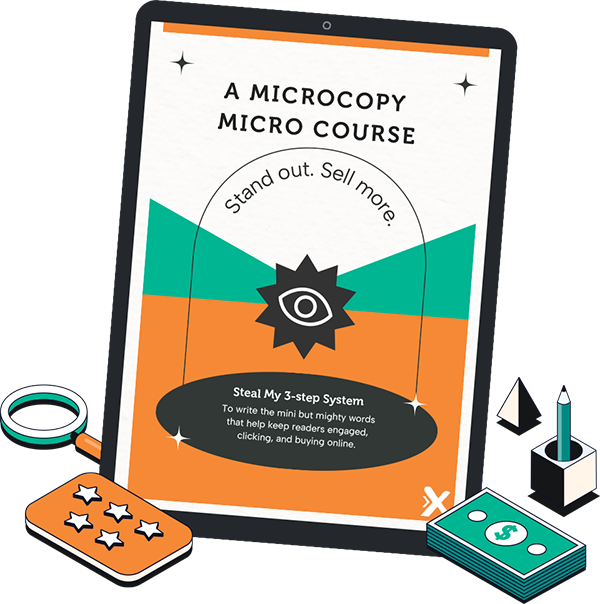So, you want to know how to start a copywriting business?
I’m so glad we met. Many people are put off by how hard they think it is to start a copywriting business, but it doesn’t have to be.
Certainly wasn’t in my experience.
If anything, compared to the unrealistic expectations and undervaluing I have experienced at some workplaces along my copywriter career path, starting a copywriting business where my clients respected me and paid me well for my work has been a bloody walk in the park.
But I’ve made plenty of mistakes and learnt from them, so you don’t have to.
Stick with me. This post will guide you through the process of how to start a freelance copywriting business, touching on what you need to make your new venture a great success.

1. Understand freelance copywriting niches
Picking a freelance copywriting niche is like choosing your favourite flavour of ice cream – it’s impossible to know before you’ve tried a few out.
In the beginning, I wrote everything from articles to eulogies, app microcopy to long sales pages. It took me a while to find my UX copywriting niche. It took me even longer to narrow it down to website copywriting. And THAT’S OK!
What will be most helpful as you navigate how to start your copywriting business is simply understanding the different ways one can niche.
It’s a big topic, so I wrote this blog with a guide to niching.
2. Get to know your audience
Nothing makes me sadder than seeing a new shop pop up only to announce a “closing sale” 6 months later.
I always attribute the owner’s choice of sky-high bricks-and-mortar costs to “following their dream” rather than a carefully researched business decision.
Understanding who you’re writing for is far more important than knowing your niche at the start of your copywriting business.
This means learning about the businesses or people who need your writing.
What do they care about? What problems can you solve for them with your words?
This knowledge helps you connect with your clients on a deeper level. Start by asking everyone you know with a business what they need help with. Curiosity will take you a long way.
3. Set up your business
Spoiler: Getting all the business stuff taken care of is an important part of starting a copywriting business.
I found this immensely tedious when I started.
Bookkeeping was one of the first things I ever outsourced. Business structure, insurance, contracts, tax, and invoicing are not my forté. Luckily, there are plenty of people who can help, (and I’m not a lawyer or tax accountant) so my only advice is to get professional advice.
Oh, and don’t wait until the last minute to get things like contracts and a way to get paid in place.
I’ve been there, done that. It’s bloody stressful.
Use the first quieter weeks to make sure when you do land a client, you’ve got the paperwork and processes in place to get paid and get started.
4. Build a solid website
Your website is your online home.
It’s where clients go to learn about you and your services. Your site need to clearly show who you are, what you offer, and how you stand out.
A good website is easy to navigate and tells potential clients only what they need to know. It does not have to be your magnum opus, and it will change rapidly in the first couple of years as you better understand your business, your clients, and your niche.
If you’re in a position where you’re wondering how to start a copywriting business, your offers will take time to solidify.
Even though you’re an amazing writer, writing for yourself can be exquisitely painful. You’re not alone if you find yourself totally stumped with how to start on your own site.
I designed Site Launcher Lab to give you the structure and accountability to quickly get your website out into the world.
Once launched, you can continue to refine and tweak as your copywriting business develops.
Let’s write your first website together.
5. Pick the Right Tech Stack
A lot of people get stuck here when thinking about how to start a copywriting business.
The tools you use can make a big difference in your work. Your tech stack might include AI writing tools, SEO software, project management systems, booking and bookkeeping software, emails, website hosting…
Initially, I just went with whatever free tool would do the job.
As my business has grown, I use whichever tool does the job best, and I use personal recommendations as much as possible.
Whether you opt for free or paid, do yourself a massive favour and accept that learning new tech takes time. I’m saying that to myself as much as you.
Don’t expect to be able to do everything you want right away.
(*scribbles this down as a mantra)
6. Follow Industry Leaders
Keeping an eye on what successful copywriters do can offer valuable insights.
As you begin to figure out how to start a copywriting business, pick a few leaders in your niche to learn from their successes and mistakes.
But, remember not to overwhelm yourself with too many voices.
Find a balance that keeps you inspired without causing confusion.
7. Invest in Your Skills
Getting inspired by people who’ve achieved what you want is great, but taking courses or programs can massively speed up your journey to success.
Something I learned way too late.
I thought I could hack my way through with free resources and 10 years of experience. Then I joined my first programs and was like, “Ohhhhhh.”
Not only do the best courses provide you with invaluable intel, but they also offer mentorship, camaraderie, and opportunities for more visibility and even clients.
Look for learning opportunities that offer practical skills and insider knowledge.
I’ve never made an investment in education that hasn’t returned to me many times over, and that includes paying over $16k to be in a mastermind.
8. Design Your Offers
By this point, you will have a better understanding of what you want your niche to be.
Now, it’s time to design your offers.
This one might be slightly controversial but it’s served me well.
Think of your services as products on a shelf. What packages or offers can you create?
Maybe you’ll offer website copy packages, blog writing, or social media content creation. Having clear offers makes it easier for clients to choose what they need.
They also make delivery so much easier for you because you’re doing a similar thing on repeat.
It’ll help you figure out how to start a successful copywriting business if you write down a list of everything you and your clients need to do from the moment they reach out (onboarding) to paying the final invoice (offboarding).
If you haven’t had a client yet, just give it your best shot. You can refine the process with each new client.
This is the process I follow to create my UX-friendly websites.
If clients can fully customise how they work with you, make sure you’re charging top dollar.
You’ll have to design literally every step for them from scratch, and that will take time.
Time = money.
9. Acquire Clients
Now, it’s time to find people who need your writing.
Start by reaching out to your network. This is so undervalued, but from what I’ve seen, most people get their first client from someone they know. Use social media and attend industry events to extend that network.
Remember, acquiring clients is about building relationships.
Be genuine, offer value, TELL EVERYONE WHAT YOU DO, stick at it, and I’m confident the clients will come.
10. Don’t Give Up
In the beginning it’s normal to wonder, how hard is it to start a copywriting business?
But perhaps the most crucial step in starting your copywriting business—and, in fact, the biggest secret to success—is simply not giving up.
Yes, there will be hurdles. You’ll face challenges that might make you question your path.
Finding clients can seem impossible on some days, and at other times, the words just won’t flow. However, this is all part of the journey.
A key difference between those who thrive and those who don’t is persistence.
It’s about pushing through those tough moments and learning from each experience. Remember, every successful copywriter you look up to has faced their share of obstacles. What set them apart was their determination to stick it out.
As shit as the tough times are, they’re where you’ll learn the most. The next time they happen, they don’t shake you in quite the same way.
Find people at a similar stage in their journey to you and become biz besties — these are literally the only people in your life who will really get it and this side of your life. My biz besties know way more about my business than my husband or parents.
Always remember why you started this journey. Your dream is worth fighting for.
Success in copywriting, as in any business, doesn’t come overnight. It’s the result of consistent effort, learning, and perseverance.
So, when the going gets tough, remind yourself you’re playing the long game.
Want weekly doses of inspiration as well as copywriting shortcuts and advice? Make sure to subscribe to The UX Factor newsletter.
Your future self will thank you for not giving up today.




